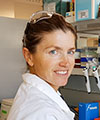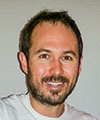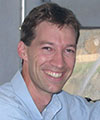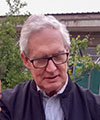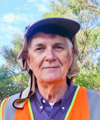People
For 15 years between 2009 and 2024 the Ecosystem Change Ecology team delivered collaborative science across CSIRO, with the School of Biological Sciences at the University of Western Australia via joint appointments, collaborative research and student supervision, and with a network of collaborators both in Australia and overseas. As part of institutional restructuring in 2024, the team dispersed across a new structure. Team members continue to collaborate on science delivery across CSIRO and with multiple external institutions. Please follow the links below to find out about their latest work.
RECENT TEAM MEMBERS:
PAST TEAM ALUMNI:
Daniel Anderson (2024). Dan completed a PhD with the School of Biological Sciences at the University of Western Australia and with CSIRO Health and Biosecurity. His research investigated the ecosystem services provided by dung beetles. He was focussed on quantifying the influence that dung beetles have on soil moisture, plant yield and plant assemblage in pastoral systems. This work advanced our knowledge of dung beetle biology and how to better inform pastoral land managers on the influential role that dung beetles play. Daniel was supervised by Jacob Berson, Raphael Didham, Theo Evans and Leigh Simmons.
Megan Lewis (2024). Megan completed a PhD with the School of Biological Sciences at the University of Western Australia and with CSIRO Health and Biosecurity. Megan’s doctoral research explored how dung beetles contribute to a sustainable gastrointestinal nematode management programme for Australian livestock. Her research aimed to identify the current use of certain veterinary pharmaceuticals and understand the socio-psychological aspects that may be driving these management decisions. In addition, her research explored the potential interactions that may be present between dung beetles and currently used veterinary pharmaceuticals control measures. Megan was supervised by Theo Evans, Raphael Didham and Jacob Berson.
Melissa Thomas (2023). Melissa completed her role as a Visiting Scientist with CSIRO Health and Biosecurity and returned to her ongoing role as an Associate Professor with the Harry Butler Institute at Murdoch University. Her engagement with the team complemented her ongoing research interests on mitigating and managing biosecurity risk, including improving and automating the detection of non-indigenous species already established in Australia. Melissa’s ongoing work spans projects that investigate new detection or repellent methodologies for vertebrates pests working closely with industry partners. Publications: [Google Scholar] [ResearchGate]
Samuel Lymbery (2022). Sam completed a position as a Postdoctoral Scientist with CSIRO Health and Biosecurity and a Forrest Prospect Fellow in the School of Biological Sciences at the University of Western Australia. His work applied evolutionary theory to devise innovative new approaches to the management of invasive ants. Sam used well-established knowledge of behavioural ecology to disrupt the social structure of invasive ants with targeted biochemicals and pheromones. These findings are part of the picture for providing a cost-effective and ecologically friendly approach to the control of these catastrophic pest species. Sam went on to secure a position as a Research Fellow in Biosecurity at the Centre for Biosecurity and One Health in the Harry Butler Institute at Murdoch University. Publications: [ResearchGate] Other links: [X/Twitter] [LinkedIn] [Personal Website]
Laura Fagan (2022). Laura completed a position as a Visiting Scientist with CSIRO Health and Biosecurity and returned to her substantive role as a Development Officer at the Western Australian Department of Primary Industries and Regional Development (DPIRD). Laura trained as an entomologist in Canada and worked as a scientist in New Zealand on integrated pest management and biosecurity. Her collaborations with the team spanned broad interests include invasion science, farm biosecurity and conservation management. Publications: [ResearchGate] Other links: [MyPestGuide] [DPIRD homepage]
Amanda Emmett (2022). Amanda completed a BSc (Hons) student with the School of Biological Sciences at the University of Western Australia and with CSIRO Health and Biosecurity. Her research was focusing on bitou bush, an invasive weed in parts of Australia. Amanda’s research extended previous research to delve deeper into the history of its invasion, using methods from genomics and phylogeography to better understand the origin, size, and genetic diversity of the founding population. The work has enhanced existing eradication efforts underway in Western Australia, and shows why it is imperative to protect our biodiversity before it is damaged beyond repair. Amanda was supervised by Karen Bell, John Scott and Bruce Webber. Amanda went on to secure a Experimental Scientst role at the University of Western Australia as well as undertaking further research with the Ecosystem Change Ecology team. Other links: [X/Twitter]
Karen Bell (2021). Karen completed a position as a Joint Appointment with CSIRO and the School of Biological Sciences at the University of Western Australia, where she was a Lecturer in Plant Ecology. Her research applied population genetics, phylogenetics and biogeography to address questions in evolutionary biology, long-distance species dispersal and plant-insect interactions. She was also working on method development in DNA metabarcoding of pollen to finding new applications for these methods. Karen went on to secure a position as a Research Scientist with CSIRO Land & Water. Publications: [Google Scholar] [ResearchGate] Other links: [X/Twitter] [LinkedIn]
Shilu Zheng (2021). Shilu completed her PhD entitled “Cascading effects of habitat fragmentation on plant intraspecific traits and ecosystem function” with the School of Biological Sciences at the University of Western Australia and with CSIRO Health and Biosecurity. Her doctoral research investigated how habitat fragmentation can drive intraspecific trait responses of plant communities on islands in Thousand Island Lake, China, and how such trait responses can translate into effects on further ecosystem processes. Shilu was supervised by Raphael Didham, Bruce Webber and Mingjian Yu. Shilu went on to secure a role as a Postdoctoral Fellow with Fudan University. Publications: [Google Scholar]
James Barr (2020). James completed his PhD entitled “Adaptive ecology of the King’s skink, Egernia kingii, in response to varying levels of predation risk, with a focus on caudal autotomy” with Curtin University and with CSIRO Land and Water. His research focused on predator recognition and anti-predatory behaviour in the King’s skink (Egernia kingii), and how these traits change when exposed to different levels of predation risk (from both native and introduced species), across isolated island populations in Western Australia. James was supervised by Ruchira Somaweera, Bill Bateman and Stephanie Godfrey. James went on to secure a Postdoctoral Fellowship working with Catherine Boisvert at Curtin University. Publications: [Google Scholar] Other links: [LinkedIn] [X/Twitter]
Juliana Pille Arnold (2020). Juliana completed her PhD entitled “Modulating effects of the surrounding landscape matrix on plant-pollinator networks within remnant habitat” with the School of Biological Sciences at the University of Western Australia and with CSIRO Land and Water. Her doctoral research investigated the impact of environmental change on species interaction networks, focusing on plant-pollinator interactions in degraded landscapes in the Swan Coastal Plain, Western Australia. Her research assessed the processes limiting pollinator visitation in modified landscapes at a landscape scale, as well as elucidating the functional consequences of resource energetic constraints for pollinators on the reproductive output of plants in fragmented woodlands. Juliana was supervised by Raphael Didham, Bruce Webber and Jason Tylianakis. Juliana went on to secure a role as a Senior Zoologist with Biologic Environmental consultancy. Other links: [LinkedIn]
Ruchira Somaweera (2020). Ruchira completed a position as a Postdoctoral Fellow and then as a Research Scientist with the team. Ruchira’s research was broadly centred around the behavioural and evolutionary ecology of reptiles in tropical Australia and South Asia. Combining field surveys, computer-based modelling, molecular techniques and museum-based studies, his portfolio of projects focused on the adaptive capability of reptiles to global environmental change, with a particular interest in interactions between native and introduced species. Ruchira went on to take up a role with Stantec as a Principal Environmental Scientist. Publications: [Google Scholar] Other links: [Web Profile] [X/Twitter] [LinkedIn] [Instagram]
Edward Tsen (2020). Edward completed his PhD entitled “Landscape connectivity and keystone frugivores: Implications for the rare rainforest tree Ryparosa kurrangii B.L. Webber (Achariaceae)” with the University of Melbourne’s School of Biosciences and with CSIRO Land and Water. His research examined the impact of anthropogenic disturbance upon plant-animal interactions in tropical rainforests and the impact of this disturbance on plant population genetics. Undertaking fieldwork across North Queensland’s Daintree region and South East Asia, Edward’s thesis scope encompassed seed and pollen dispersal, camera trap fauna surveys, plant taxonomy and landscape connectivity. Edward was supervised by Bruce Webber and Ian Woodrow. Edward went on to secure a role as a data analyst with the Victorian Environmental Protection Authority. Publications: [Google Scholar] Other links: [LinkedIn]
Glenn Maslen (2020). Glenn completed his BSc(Hons) entitled “The effect of stinking passionflower (Passiflora foetida) on the nesting dynamics and success of freshwater crocodiles (Crocodylus johnstoni) at Lake Argyle” with the School of Agriculture and Environment at the University of Western Australia and with CSIRO Land and Water. His research investigated the spatio-temporal relationship between this invasive weed and the reproductive output of freshwater crocodiles at Lake Argyle in the Kimberley region of Western Australia. Glenn was supervised by Ruchira Somaweera, Bruce Webber and Raphael Didham. Glenn continued on in his role as a GIS analyst with Eco Logical Australia. Other links: [LinkedIn] [X/Twitter]
Melinda Trudgen (2020). Melinda completed her PhD entitled “How to jump the garden fence: deconstructing the niche of range shifting plants to inform management in the Anthropocene” with the School of Biological Sciences at the University of Western Australia and with CSIRO Land and Water. Her research investigated how cultivated urban trees can escape to become environmental weeds. This work used rosewood (Tipuana tipu), which is on the Australian Alert List as a potential Weed of National Significance, as a model species. Melinda’s research focused on climatic and edaphic factors that are likely to affect the potential distribution of this species, as a way of gaining insight into how urban plants ‘jump the garden fence’. Melinda was supervised by Bruce Webber, John Scott and Hans Lambers. Publications: [Google Scholar] Other links: [Web Profile] [X/Twitter] [LinkedIn]
Celine Bønnelykke (2020). Celine completed her MSc in Agriculture and Ecology at University of Copenhagen and with CSIRO Health and Biosecurity. Celine undertook research on the germination ecology of Passiflora foetida to help understand tolerances and vulnerabilities in the species that can be exploited in an improved weed control program. She used a range of controlled condition experiments in glasshouses and growth chambers to study germination and early stage growth traits and their impact on plant performance. Celine was supervised by Bruce Webber. After finishing with the team, Celine continued with her studies at the University of Copenhagen.
Poasa Nauluvula (2020). Poasa completed his PhD entitled “Growth, physiology and nutritional value of cassava in Fiji for adaptation solutions to a changing climate” with the University of the South Pacific and CSIRO Land and Water. His research focused on the growth and development of cassava in response to climatic drivers and how this novel understanding can inform our ability to improve food security in the Pacific in a rapidly changing climate. This research is likely to make a significant contribution to the understanding of root crop agronomy not only for Pacific nations, but to the many other countries worldwide that have cassava as a staple component of their diet. Poasa was supervised by Bruce Webber, Anjeela Jokhan and Ros Gleadow. Poasa continued on in his role as an Agricultural Advisor for the Secretariat of the Pacific Community (SPC). Other links: [Linkedin]
Caitlin Nagle (2019). Caitlin completed her MSc entitled “Response of herpetofauna to continued habitat degradation on the island of Nosy Komba, Madagascar” with the School of Biological Sciences at the University of Western Australia and CSIRO Land and Water. Her research focused on the sensitivity of reptiles and amphibians to continued habitat degradation on the island of Nosy Komba, Madagascar, utilising three years of data from a range of forest and plantation habitats spanning a degradation gradient. By assessing change in species richness, abundance and community assemblage as a result of habitat degradation, Caitlin identified habitats that may be at an increased risk of, or have already undergone, biodiversity loss, thereby determining the level of degradation that can be withstood by reptiles and amphibians. With so much of Madagascar’s natural vegetation already gone, understanding the value of degraded habitats will help to optimise management to conserve what biodiversity remains. Caitlin was supervised by Raphael Didham and Jane Prince. Caitlin went on to work as a zoologist in the environmental consultancy industry in Western Australia.
Shenade Findlay (2019). Shenade completed her MSc entitled “Characterising the climatic regeneration niche of stinking passionflower (Passiflora foetida) with the School of Biological Sciences at the University of Western Australia and CSIRO Land and Water. Her research involved characterising the climatic regeneration niche of stinking passionflower (Passiflora foetida), exploring how climate constrains and limits the growth of this weed in its early life stages. Shenade used climate controlled growth chambers to understand how air temperature and soil moisture interact to shape germination and establishment, and to explore whether populations distributed across northern Australia show signs of local adaptation in their climatic requirements. Shenade was supervised by Bruce Webber and Raphael Didham. Shenade went on to secure a position as an environmental scientist with Phoenix Environmental Services.
Tori Reynolds (2019). Tori completed her PhD entitled “The role of wild pollinators to plant communities in highly fragmented agricultural landscapes” with the School of Biological Sciences at the University of Queensland and CSIRO Land and Water. Her research involved identifying the role of pollinators to native plant communities in highly fragmented agricultural landscapes of southwest Western Australia, assessing the abundance and composition of pollinators and their resource collection patterns in remnant wildflower communities and adjacent co-flowering canola fields. Tori also measured pollen limitation in native plants and use DNA meta-barcoding techniques to advance understanding of the network of pollination interactions occurring across large-scale agricultural landscapes. Tori was supervised by Margie Mayfield, Saul Cunningham, Romina Rader and Bruce Webber. Tori went on to secure a postdoctoral position with Berry Brosi at Emory University in the USA. Other links: [X/Twitter] [Web Profile]
Tommaso Jucker (2019). Tommaso completed a position as a Research Scientist with the team, focusing on understanding what determines the composition, structure and function of plant communities, in an effort to predict how these will respond to rapid global change. Tommaso went on to secure a position as a Natural Environment Research Council Fellow with the School of Biological Sciences at the University of Bristol in the UK. Publications: [Google Scholar] Other links: [Web Profile] [X/Twitter]
Helen White (2018). Helen completed her PhD entitled “Resistance, resilience and adaptation to climate change in riparian ecosystems” with the School of Biological Sciences at the University of Western Australia and CSIRO Land and Water. This research investigated the impacts of climate change on riparian ecosystems in the south west of Western Australia, investigating the impacts reduced stream flow on water dependent communities to arm land managers with adaptation strategies for restoration and management in to the future. This project was part of a bigger project on Blackberry decline, focusing on restoration in a post invasion landscape. Helen was supervised by Raphael Didham and John Scott. Helen went on to secure a position as an advisor with the Parliamentary Commissioner for the Environment in New Zealand. Publications: [Google Scholar]
Katie White (2017). Katie completed her BSc(Hons) entitled “Limitations to invasion success: identifying the climatic requirements of Passiflora foetida during germination and early establishment life phases” with the School of Biological Sciences at the University of Western Australia and CSIRO Land and Water. Her research investigated the influence of climatic gradients on the growth rates, germination success and reproductive potential of stinking passionflower to inform the search for a biological control solution for this threatening weed. Katie was supervised by Bruce Webber, Karen Bell and Wolfgang Lewandrowski. Katie went on to secure a position as an Environmental Officer with the Shire of Esperance. Other links: [LinkedIn]
Dennis Byrne (2017). Dennis completed his BSc(Hons) entitled “Elucidating the invasion history and breeding system of Chrysanthemoides monilifera subsp. rotundata (bitou bush) in Western Australia to improve management strategies” with the School of Biological Sciences at the University of Western Australia and CSIRO Land and Water. His research used molecular tools to disentangle the historical biogeography of bitou bush invasions in Australia in order to improve chances of local eradication and management effectiveness. Dennis was supervised by Karen Bell, Bruce Webber and Pieter Poot. Dennis went on to undertake an MSc at the University of Western Australia.
Timm Dobert (2017). Timm completed his PhD entitled “The influence of logging on understorey plant communities in tropical lowland rainforest in Borneo” in 2015 with the School of Animal Biology at the University of Western Australia and with CSIRO Land and Water. Timm was supervised by Raphael Didham, Bruce Webber and Katharine Dickinson and his research was conducted as part of the Stability of Altered Forest Ecosystems (SAFE) project in Sabah. Timm examined the level of exotic plant invasions and variation in functional traits and evolutionary relatedness across a logging-intensity gradient from primary to repeatedly logged forests. His results showed that logging facilitates the invasion of exotic plants, albeit at currently low levels, and that a strong logging signal persists in the functional and phylogenetic structure of understorey plant communities. After his PhD, Timm worked with us as a Volunteer Fellow, during which time he extended his studies on the impacts of fragmentation and global change on tropical forest biodiversity. Timm went on to secure a postdoctoral position at the University of Alberta in Canada, investigating livestock grazing influences on ecology, soil carbon and biodiversity of Canada’s Great Plains. Publications: [Google Scholar] Other links: [LinkedIn]
Alice Watt (2017). Alice completed her BSc(Hons) entitled “Informing land managers on climate resilient restoration – optimising resource allocation in Eucalyptus rudis seedlings along a 600mm rainfall gradient” in 2016 at the University of Western Australia and with CSIRO Land and Water, supervised by Bruce Webber, Raphael Didham and Helen White. After her Hons year Alice worked with our team as a Volunteer Fellow, assisting with our projects investigating climate change resilience in riparian revegetation programs in the south-west of Western Australia. Alice went on to secure a position as an Environmental Consultant with Phoenix Environmental Services.
Caroline Delaisse (2017). Caroline completed her BSc(Hons) entitled “Understanding processes influencing seed germination in Rubus anglocandicans to improve weed invasion management” in 2015 at the University of Western Australia and with CSIRO Land and Water, supervised by Bruce Webber and Pieter Poot. After her Hons year, Caroline assisted with our projects on understanding the seedbank of highly invasive weed species to improve management outcomes, primarily blackberry (Rubus anglocandicans). Caroline went on to secure an Experimental Scientist position with CSIRO in Canberra, ACT, working on invasive plant management. Other links: [LinkedIn]
Veronica Wilson (2016). Veronica completed an Indigenous Cadetship with CSIRO Land and Water in our team while studying at the University of Western Australia. Veronica provided enthusiastic research assistance for a number of our projects focusing on plant ecology field studies and camera trap research, among other things. Veronica went on to secure a position with the Swan River Trust, a part of the WA Department of Biodiversity, Conservation and Attractions.
Sonia Aghighi (2014). Sonia completed her PhD entitled “The etiology and epidemiology of European Blackberry (Rubus anglocandicans) decline in South-West of Western Australia” at Murdoch University and with CSIRO Ecosystem Sciences, supervised by John Scott, Treena Burgess and Giles Hardy. Sonia returned to Iran to take up a lecturing position in plant pathology at the Shahid Bahonar University of Kerman Publications: [Google Scholar]
Samantha Harris-Wetherbee (2013). Sam completed her MSc entitled “Ontogenetic defence trajectories in the rainforest sub-canopy tree, Ryparosa kurrangii” at the University of Melbourne and with CSIRO Ecosystem Sciences, supervised by Bruce Webber and Ian Woodrow. Sam went on to undertake an MSc in Science Communication at Imperial College in the UK. Other links: [LinkedIn]
Leonard Tan (2013). Leonard completed his BSc(Hons) entitled “Does competition with native plants limit the invasion risk of Tipuana tipu in south-western Australia?” at the University of Western Australia and with CSIRO Ecosystem Sciences, supervised by Bruce Webber, Hans Lambers and Melinda Trudgen. Leonard went on to work in environmental consulting in Singapore.
Nikolai MacNee (2013). Nikolai completed his BSc(Hons) entitled “Responses of Cassava and Taro to elevated carbon dioxide” at Monash University and with CSIRO Ecosystem Sciences, supervised by Bruce Webber, Ros Gleadow and Cecilia Blomstedt. Nikolai went on to undertake a PhD at the University of Auckland. Publications: [Google Scholar] Other links: [LinkedIn]
